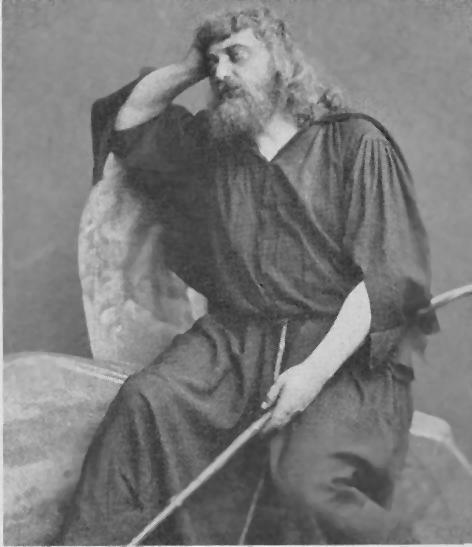Albert Niemann
Niemann was the greatest German tenor star of his generation, the uncrowned king of the Berlin Hofoper. He had begun at age 17, as a chorister and actor with a touring company. One year later, he was already a comprimario at the Dessau theater; only then, he studied voice, not least (with financial support by the king of Hannover) with Gilbert Duprez in Paris. Back to Germany in 1852, he sang his first main role (Max) in Halle an der Saale, from where he went on to Stettin. 1854–66, he was at the Hannover opera theater, making guest appearances all over Germany. In 1866, after winning the war against Austria, Prussia was the leading power in Germany – and so as to warrant appropriate splendor also on the field of culture, endowed the Berlin Hofoper with generous funds. As a consequence, the Hofoper could hire Niemann, who was to put his mark on Germany's by then most important opera theater for the next 22 years. He soon became the most important Wagner tenor (although the cooperation between him and Richard Wagner was not free of tensions). Already in 1861, Wagner had engaged Niemann for the Paris premiere of Tannhäuser;. At the first Bayreuth Festival in 1876, Niemann was Siegmund – Siegmund and Tristan were considered his most important roles. He was England's first Siegmund (London 1882) and America's first Tristan (Met 1886) and elder Siegfried (Met 1888; he was a member of the Met from 1886 to 1888). But he was by no means a Wagner singer only: Germany's first Radamès (Berlin 1874), America's first Fernand Cortez in Spontini's opera (Met 1888), a famous Raoul, Jean de Leyde and Éléazar. His farewell performance was a Berlin Tristan in 1888. Reference 1: Kutsch & Riemens, reference 2: Einhard Luther, So viel der Helden. Biographie eines Stimmfaches, Teil 3: Wagnertenöre der Kaiserzeit (1871–1918), Berlin 2006 I wish to thank Tom Silverbörg for the picture. |
